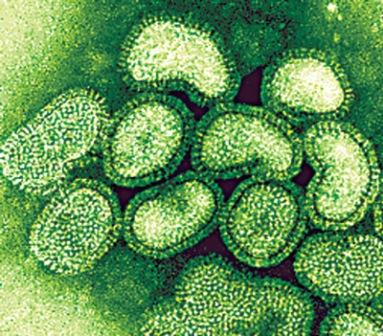On June 11, 2009, the World Health Organization (WHO) raised the worldwide pandemic alert level to Phase 6 in response to the ongoing global spread of the novel influenza A (H1N1) virus. A Phase 6 designation indicates that a global pandemic is underway. The World Health Organization’s decision to raise the pandemic alert level to Phase 6, is a true reflection of the spread of the virus, not the severity of illness caused by this virus.
More than 70 countries are now reporting cases of human infection with novel H1N1 flu. This number has been increasing over the past few weeks, but many of the cases reportedly had links to travel or were localized outbreaks without community spread. The WHO designation of a pandemic alert Phase 6 reflects the fact that there are now ongoing community level outbreaks in multiple parts of the world.
So why is novel H1N1 virus sometimes called “Swine Flu”?
This virus was originally referred to as “Swine Flu” because laboratory testing showed that many of the genes in this new virus were very similar to the influenza viruses that normally occur in pigs in North America. However further studies has shown that this new virus is indeed very different from that which normally circulates in North American pigs. This virus has two genes from flu viruses that normally circulate in pigs in Europe and Asia and avian genes and human genes. Scientists refer to this as a “quadruple reassortant” virus.
Treatment:
Everyone in Ireland is shortly to be offered a free swine flu vaccination as health authorities brace themselves for a worst-case  scenario of up to 100,000 new cases a week. THE first wave of swine flu vaccinations in Ireland will be administered to health care workers and people most at risk of infection, according to expert, Dr Tony Holohan. The Department of Health has so-called “sleeping contracts” with pharmaceutical giants SmithGlaxoKline and Baxter Pharmaceuticals for the vaccine. They will manufacture 7.7 million doses of the vaccine for Ireland. The vaccines, reported to be costing the Exchequer €88million,
scenario of up to 100,000 new cases a week. THE first wave of swine flu vaccinations in Ireland will be administered to health care workers and people most at risk of infection, according to expert, Dr Tony Holohan. The Department of Health has so-called “sleeping contracts” with pharmaceutical giants SmithGlaxoKline and Baxter Pharmaceuticals for the vaccine. They will manufacture 7.7 million doses of the vaccine for Ireland. The vaccines, reported to be costing the Exchequer €88million,  will be administered either through Doctors or through a network of 121 swine flu clinics as yet to be set up.
will be administered either through Doctors or through a network of 121 swine flu clinics as yet to be set up.
* Tamiflu must be taken within 48 hours of the onset of flu symptoms for full efficacy. It is usually taken for approximately five days.
* It works by reducing the symptoms and minimising the risk of an infected person passing on the virus. Side-effects can include nausea, vomiting, diarrhoea, abdominal pain or headache. It is not normally recommended to be taken during pregnancy.
* Anyone with kidney, heart, or respiratory diseases are advised to consult their doctor.
* Swine flu, like seasonal flu, is usually a mild disease, with most people expected to make a full recovery in a few days and suffer no lasting ill-effects. However, some people may develop complications such as pneumonia. Those most at risk of complications include people aged 65 and over, children under five years and pregnant women.
* Pregnant women run the risk of developing complications such as asthma and diabetes.
* People who already have an underlying chronic medical condition could see symptoms getting worse after contracting the flu.
At present there have been 63 reported cases of swine flu in Ireland, 57 of which have been amongst those who have travelled to infected regions. Presently no cases have been reported in County Tipperary.
What should I do if I get sick?
If you live in areas where people have been identified with novel H1N1 flu and become ill with influenza-like symptoms, you should stay home and avoid contact with other people. Staying at home means that you should not leave your home except to seek medical care. This means avoiding normal activities, including work, school, travel, shopping, social events, and all public gatherings.
Emergency warning signs that indicate medical attention is needed:
In Children:-
* Fast breathing or trouble with breathing.
* Bluish or gray skin color.
* Not drinking enough fluids.
* Severe or persistent vomiting.
* Not waking up, not interacting, seizures and abnormal behaviour.
* Being so irritable that the child does not want to be held.
* Flu-like symptoms improve but then return with fever and worse cough.
In Adults:-
* Difficulty breathing or shortness of breath.
* Pain or pressure in the chest or abdomen.
* Sudden dizziness.
* Confusion and seizures.
* Severe or persistent vomiting.
* Flu-like symptoms improve but then return with fever and a worse cough.

Leave a Reply